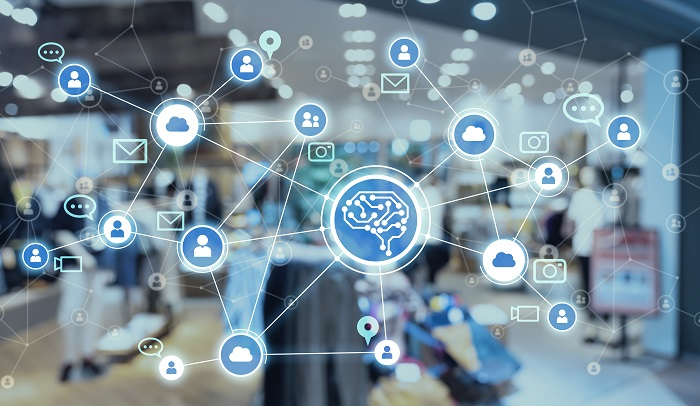There are many AI-powered B2B products on the market. Executives could understandably feel overwhelmed. It takes time and research to get a clear picture of this crowded market. Executives must dig deep just to differentiate products. Finding the right fit for their venture requires even more effort, plus financial investment.
“It’s hard to find anyone who is not talking about the promise of AI and machine learning in marketing,” Laura Beaudin, partner, Bain & Company, said. “But I also think that there is insight generation or strategy that has to be a part of that as well.”
The learning curve is steep, but the benefits of AI are becoming evident. Marketers are already defining and anticipating the business value.
eBook: The Promises And Perils Of Modern AI
IBM conducted a survey of executives to figure out the ways they’re approaching innovative new tools. In the report, titled “The Modern Marketing Mandate,” CMOs honed in on a few distinct applications for AI in marketing. They indicated that they hoped to use AI to accomplish the following:
- Rapidly deliver insights to assist CX design / development teams
- Engage customers via chatbots and highly personalized experiences
- Automate marketing tasks, allowing humans to focus on more high-value activities
It is often hard to make accurate predictions about technology, due to the rapid pace and complexity of VC-fueled innovation. Sometimes, new technologies underperform. Truly transformative solutions seemingly come from nowhere. Instead of addressing the talking points, these solutions change the conversation entirely. AI, within the context of marketing tech, will be no exception.
Related: CMOs Charge Ahead With Digital Spending
When asked what the IBM report might have missed, Nik Sanghvi, an executive at Robosoft Technologies, said that “predictive intelligence,” specifically around lead scoring, could speed up the conversion cycle.
Beaudin said that effective modern marketing needs to be the perfect blend of “the math and the magic.” There is benefit to the automation, but AI can also generate powerful insights. The CMO role is shifting to become responsible for various touchpoints along the customer journey. To be effective, marketing campaigns need to communicate the right message to the right person at the right moment in time.
eBook: The Rise of Intent Marketing
Beaudin recently co-authored a Bain report titled “It’s About Time: Why Your Marketing May Be Falling Short.” The report mentioned that the proliferation of digital channels has heightened the importance of message timing. “Timing comes into play through signals, sequence and speed,” the report stated. “And the technology now exists for marketers to test each with high confidence.”
If marketers have tools that allow them to pick up on the right signals, they will have greater relevance to their target demographic. This is reflected in sales. However, there is a fine line when it comes to personalization. Ideally, personalization efforts are genuinely helpful and seen as intelligent curation. However, sometimes personalization goes too far and becomes eerie. This can lead to a loss of brand equity.
Beaudin provided an example of a positive scenario. A cold medication company recognized the value of reaching out to consumers when they’re feeling sick. Although the company could build brand awareness at any time, the company knew that it would have the most relevance to those with sniffly noses. By picking up on the right signals, like WebMD search terms, the company was able to engage consumers within the first two days of illness.
By strategically deploying marketing creativity, the cold medication company built greater brand loyalty over time. This is the value of meaningful engagement. AI crunches the numbers, marketers act on the insights, and in the process, they strike an optimal balance of the math and the magic.
Beaudin leads Bain’s global marketing and excellence practice. Bain & Company often looks at net promoter scores to figure out which strategies are working. This metric reveals customer satisfaction and brand loyalty.
“You want to be able to help customers think about all of the things that could be exciting to them around that brand,” Beaudin said. With newly-generated insights, companies can make more meaningful product recommendations, and have it feel like an ongoing conversation, as opposed to a one-sided push.








